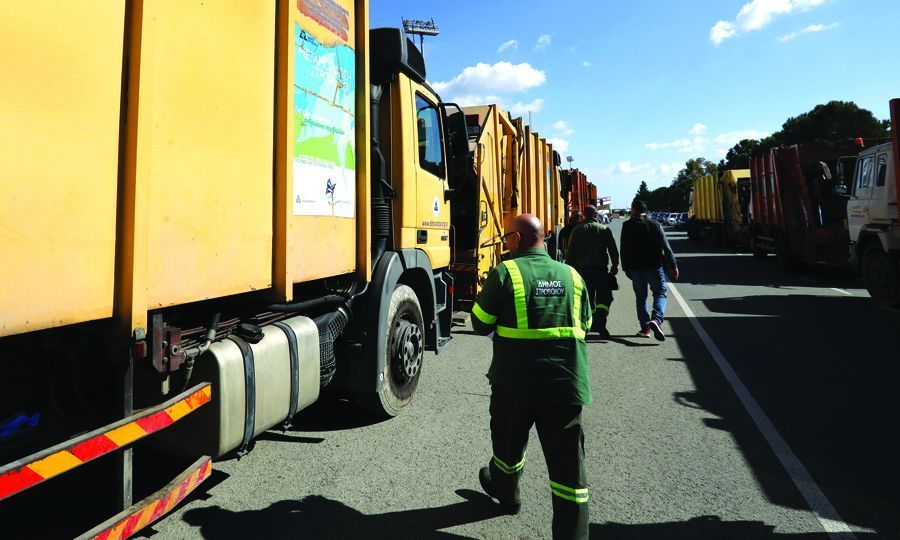
Source: CNA
A roadmap for implementing the "Pay as You Throw" system by municipalities and communities was agreed upon on Thursday during a meeting hosted by the Ministry of Agriculture, Rural Development, and Environment. The meeting, attended by the Union of Municipalities and the Union of Communities, was chaired by Agriculture Minister Maria Panayiotou in Nicosia.
In her statements following the meeting, Minister Panayiotou thanked the Union of Municipalities and the Union of Communities for attending and emphasized the importance of the discussions. She described the meeting as significant, as it outlined the steps and actions required to implement the "Pay as You Throw" system.
"We must address issues that could lead municipalities into significant challenges in the future," said Andreas Vyras, President of the Union of Municipalities.
He added, "All participants agreed that it is our shared intention and commitment to implement the source-sorting system due to its significant environmental benefits."
Vyras noted that while the system was designed in 2022 and inherited from the previous government, improvements are needed to address issues raised by local authorities. These adjustments aim to ensure that citizens can adopt a rewarding system that incentivizes proper waste management while helping Cyprus reduce its massive garbage volumes and improve sustainability.
Minister Panayiotou announced that regular meetings would be held alongside a newly formed working group to tackle the challenges identified. "Meeting dates have already been set, and we’ve outlined the initial information needed to ensure our discussions are constructive and productive," she said.
20 serious obstacles
Andreas Vyras reiterated the commitment of municipalities and communities to implementing the "Pay as You Throw" system, which he described as a necessity for Cyprus. "As local government and as a state, we are obliged to implement this system—not because we owe it to the European Union, but because it is beneficial for our country," he said.
During the meeting, around 20 significant issues were identified that must be resolved before the system can be implemented. These include legal and legislative amendments, financial challenges, and practical concerns related to waste management.
"Due to the seriousness of these issues, we’ve decided on a roadmap to address them one by one," Vyras explained. He highlighted the formation of working groups involving the Ministry, state departments, the Union of Municipalities, and the Union of Communities to collaboratively resolve these challenges.
"Critical issues include legal frameworks, financial planning, and operational logistics, such as sorting and the management of organic waste. It’s not just about collecting waste at the source—it also needs to be properly managed afterward," he said.
No specific deadline for implementation
When asked whether the roadmap would delay the system’s implementation, Vyras clarified that no specific timeline had been set. "For the system to be implemented, these issues must be resolved first. The intention is to begin addressing them as soon as possible," he added.
Optimism from Communities
Andreas Kitromilides, President of the Union of Communities, expressed optimism about finding solutions. "We must move forward with this system because it’s critical for the benefit of society, our communities, and our residents," he said.
He concluded by stating, "Through continued discussions, we believe we can find the necessary solutions and gradually implement the system."































